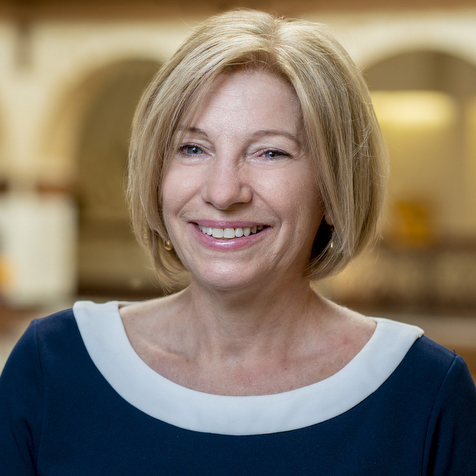Institutional Investor is proud to recognize leaders within the allocator community for their outstanding contributions to portfolio development at the second annual AlphaEdge Recognition Dinner. Prior to the event, we sat down with Cathy Ulozas, recognized in the category of Most Influential Women in Investment Management.
As Senior Vice President and Chief Investment Officer of Drexel University, Cathy Ulozas is leveraging her perspective in education to continue the work of founder Anthony Drexel. Located in the center of Philadelphia’s manufacturing district, the school was created in 1891 to support students’ training and education and development. Leading the Investment Office since February 2010, Cathy joined the university after more than 20 years in corporate finance and investment management.
She is a graduate of Drew University in Madison, NJ, where she received her bachelor’s degree in Economics/Political Science, after which she earned her MBA in international business from The George Washington University School of Business. After beginning her career at Aetna Life and Casualty, Cathy worked for three other insurance companies, the Arizona State Retirement System and ING Direct.
The following has been edited for length and clarity.
What is the biggest challenge you are facing in your job today or facing the industry today?
 From the endowment investment side, there are challenges in this market with many unknowns and increased geopolitical risk that make long-term decisions. From a higher-ed perspective, changes in demographics and cost in education have created headwinds for universities.
From the endowment investment side, there are challenges in this market with many unknowns and increased geopolitical risk that make long-term decisions. From a higher-ed perspective, changes in demographics and cost in education have created headwinds for universities.
I will say, however, that I think that Drexel is in a strong place in this environment given our co-op program, which has been around for more than 100 years. We have been a leader in experiential education, and our students graduate with a great education and full-time employment experience through university-approved employers. It is a very difficult time, and many are questioning of the value of a college -year degree, but through our 15 colleges and schools in coordination with the long-standing success of our co-op program, Drexel is in a great position to meet prepare our students to succeed.
If someone asked you today if you should go to university, what would you say?
I would say, “Yes,” to the right place. To develop and succeed, you need the opportunity and the ability to understand the concepts that defines your career and your work, so choosing the right place is essential to your training, education and development.
What are you most excited about?
From the standpoint that I have a fixed income background, bonds are finally having their day, and we have been looking to add more exposure. Also, we just hired a senior person that joins us is a couple weeks to fill the role of Managing Director of Private Markets. With our portfolio now exceeding $1 billion, we plan to expand into those assets and are looking forward to having increased expertise as a team as we set our deployment plans.
Do you think the move to democratizing private assets is a good thing, and do you think it’s going to benefit Drexel?
To a great extent, yes; again, the devil’s in the details.
We need to understand what we are committing to for the long run; I’m happy to see opportunities we haven’t before, but just because they are available doesn’t mean you have to execute.
Who were your mentors?
Eunice R. Berman who led fixed income research at JPMorgan taught me how a lot, in terms of market analysis and understanding. By example, she showed me how important interactions are – and how as a woman she was able to succeed in very high places within JPMorgan. Her ability to reach out and help people was unparalleled.
On her passing, I went to her service in Lower Manhattan, and it was overwhelming, with the number of people who attended and clearly whose lives she influenced. She had an amazing effect on me, as a leader and as a friend and as a mentor – as did my parents, who told me I could do anything and gave me the courage to try.
If you weren’t in this industry, what would you be doing?
I would be an airline pilot.
What is the one thing you would like the industry to improve on, one positive change?
Transparency of data and strategy: I still think we need a lot more work on understanding the investments we pursue. Although there’s a lot of information, we need to develop better ways to organize and analyze the potential outcomes.
All models have some degree of bias, so questions need to be asked. Having transparency and communication with investment managers is critical. Hope should not be our only strategy.
For more content of Investor Week, visit the group here.
To discuss the content of this article or gain access to like content, log in or request membership here.
